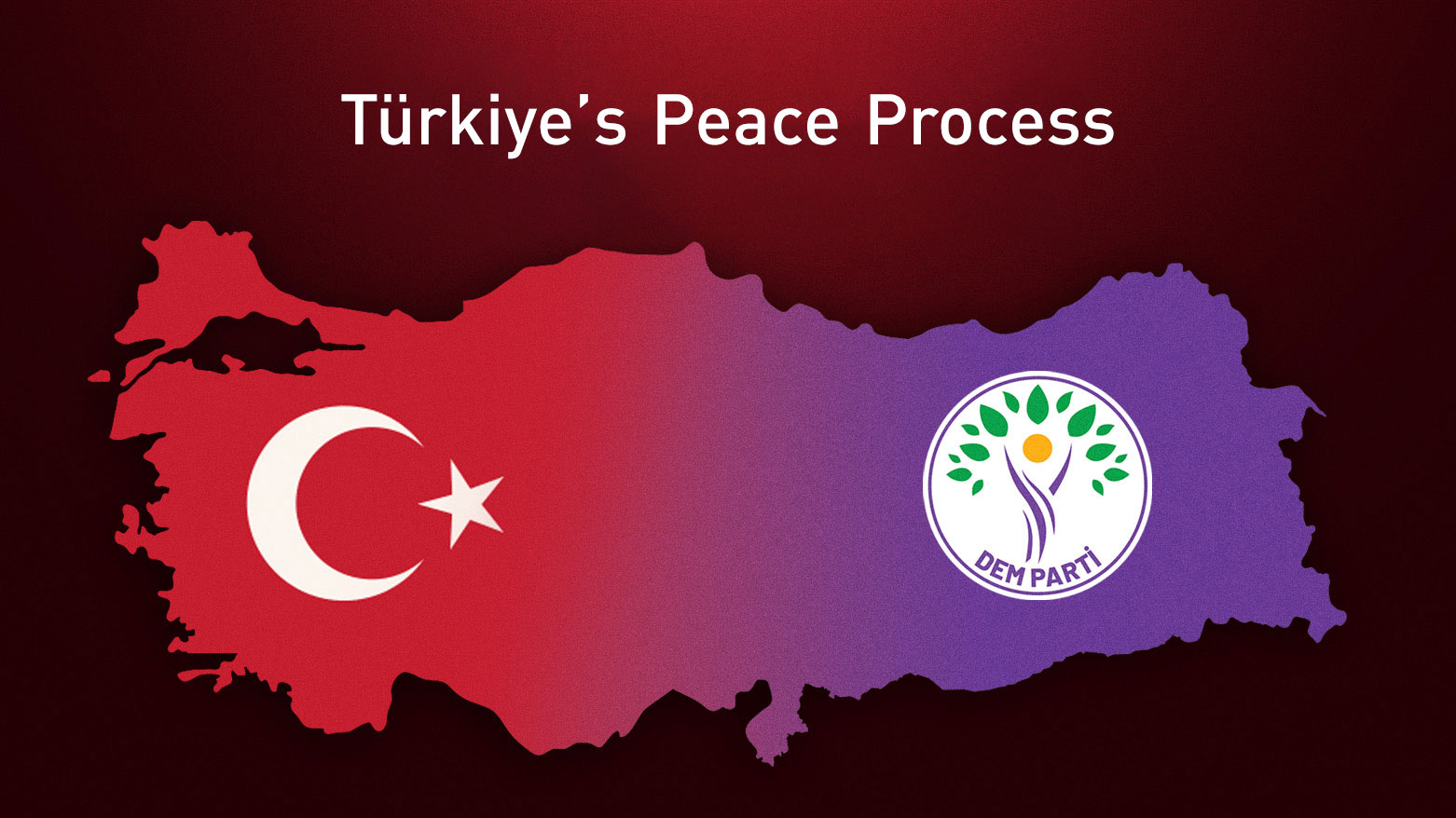Building Peace on "Equal Citizenship": Erdogan, DEM Party to Discuss Constitutional Rights
Erdogan will meet DEM Party leaders and the İmralı delegation on Thursday to discuss constitutional rights and the peace process following the PKK's withdrawal from Turkey. The DEM Party emphasized that lasting peace requires "equal citizenship" and democratic reforms, not just disarmament.

ERBIL (Kurdistan24) – In a move described as a defining moment in Türkiye’s renewed peace initiative, President Recep Tayyip Erdogan is scheduled to meet on Thursday, with lawmakers from the pro-Kurdish DEM Party and members of the Imrali delegation. The meeting, regarded as the third round of dialogue between the two sides, will reportedly address the final stage of the peace process and discuss necessary political and legislative measures to sustain it.
According to media outlets close to the DEM Party, Co-Chairs Pervin Buldan and Mithat Sancar, along with members of the Imrali delegation, are expected to attend the talks at the Presidential Complex in Ankara. The meeting is seen as a crucial step toward re-establishing structured dialogue between the government and Kurdish representatives following the historic October 26 declaration by the Kurdistan Workers’ Party (PKK) to withdraw its forces from Turkish territory.
President Erdogan announced earlier this week that discussions with the DEM Party delegation would focus on “the latest developments related to the peace process and future legislative steps,” amid growing calls for institutional and political frameworks to sustain the new phase.
Following its Central Council meeting, the DEM Party released an official statement outlining its stance on the “Peace and Democratic Society Process.” The party reaffirmed its readiness to assume responsibility for building “a lasting and inclusive peace,” urging the government to take the required legal and political initiatives.
The statement described the PKK’s withdrawal from Türkiye on October 26 as “a historic turning point for democracy and social peace.” It emphasized that the success of this phase depends on “the implementation of the necessary legislative and political measures” and stressed that “peace is not only the silencing of weapons, but the recognition of democratic rights and equal citizenship.”
“The will of our peoples to end decades of pain, loss, and destruction is clear,” the statement continued. “For politics to replace violence, and democratic solutions to prevail over conflict, these steps must be supported sincerely. Peace is built not by the absence of arms alone but by constitutional recognition of rights and the establishment of genuine equality among nations.”
DEM Party co-chairs, following their meeting on October 27, reiterated that “for the Peace and Democratic Society Process to move forward and for peace and coexistence to take root, all actors must act responsibly and decisively.”
Adding to the momentum, Cemil Bayik, Co-Chair of the KCK Executive Council, spoke on Tuesday about the call for peace issued by PKK leader Abdullah Ocalan. In his remarks to the Firat News Agency (ANF)-an Agency that is near to PKK-, Bayik explained that the new phase seeks to establish “democratic integration” between Turks and Kurds, not assimilation or surrender.
“Ocalan emphasizes that the aim of this initiative is not to dissolve Kurdish identity but to rebuild the historical relationship between Kurds and Turks that has been fractured for two centuries,” Bayik said. “Integration is not assimilation, nor submission, nor Turkification. It means coexistence within Türkiye based on democratic principles, recognition, and equality.”
He further noted that the state’s longstanding policies of denial and exclusion had driven Kurds away from the Turkish Republic. To correct this, he said, “all identities must be constitutionally and legally guaranteed.” Bayik described Ocalan’s recognition as a legitimate interlocutor after 27 years of imprisonment as “a step that offers the Kurdish people a sense of relief and hope.”
Nationalist Movement Party (MHP) leader Devlet Bahçeli also weighed in on the new phase, expressing guarded optimism. In a statement marking Republic Day on Tuesday, Bahçeli described the peace process as “a symbol of the resurgence of Turkish-Kurdish brotherhood.”
He said the PKK’s decision to withdraw from Türkiye would “bring a permanent spring to the nation,” adding that “this will have positive and significant repercussions for our region.” Bahçeli emphasized that a “terror-free Türkiye” would solidify national unity and stability, marking “a new century of peace, prosperity, and cohesion.”
“Peace and brotherhood are the true legacy of our Republic,” he said. “Those who fear peace and try to sow discord must be met with vigilance. A terror-free Türkiye is the emblem of our national unity and the enduring symbol of the Turkish-Kurdish brotherhood.”
The upcoming meeting between President Erdogan and the Imrali delegation is expected to define the next chapter of Türkiye’s long-stalled peace process. It follows a series of unprecedented developments — including the PKK’s withdrawal announcement, Ocalan’s call for democratic coexistence, and political signals of cautious optimism from nationalist circles.
While optimism surrounds the process, observers note that its success will depend on concrete political action, mutual trust, and transparent mechanisms for dialogue. For the DEM Party, peace means institutionalizing democracy and equality within Türkiye’s constitutional framework. For the government, it is a path toward internal stability and national reconciliation.
As Türkiye enters this delicate phase, the forthcoming Ankara meeting may mark not only a revival of dialogue but a potential redefinition of coexistence — one built not on arms and division, but on recognition, justice, and shared citizenship in a democratic state.